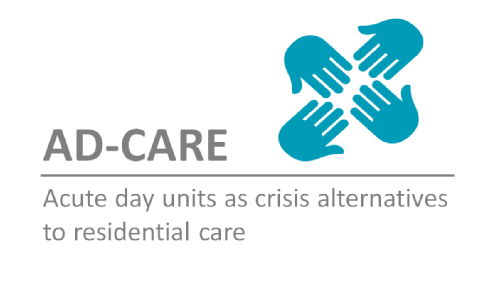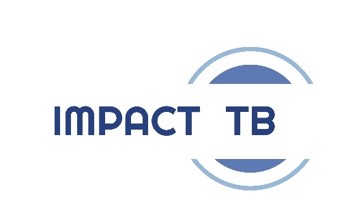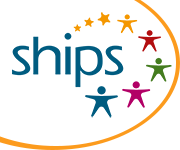Research by Methodological Approach: Economic analyses based on observational studies
ADCARE
Acute Day Units as Crisis Alternatives to Residential Care
This study is evaluating the impact of Acute Day Units as crisis alternatives to residential care for individuals with acute mental health needs. To find the study website, please follow this link.
HE: Jason Madan, Alastair Canaway
Better Start
Fulfilling Lives: A Better Start Evaluation and Learning
A Better Start is a ground-breaking ten year test and learn initiative to see what methods are the best for laying the foundations for 0-3 year olds to improve their future health, social and educational outcomes and put evidence based early intervention and prevention at the centre of service delivery and practice. Please find more information on the study here.
HE lead: Stavros Petrou, Sungwook Kim PI: Jane Barlow Funder: Big Lottery Call
ENCORE
Evaluating the Effects of Community Treatment Orders (CTOs) in England Using the Mental Health Minimum Dataset
Community Treatment Orders (CTOs) were introduced in England 2008. CTOs allow patients detained in hospital for treatment under the Mental Health Act (2007) (MHA) to be discharged under specific conditions. The extent of their use was unexpected: around 20,000 patients have been placed on CTOs to date. Large variation in their use has been noted, and monitoring by the Care Quality Commission (CQC) suggests that patients of black and minority (BME) ethnicity are over-represented among those on CTOs. Evidence of effectiveness is sparse, and the only (three) clinical trials worldwide all failed to show any effects on clinical outcomes. Reviews of observational studies broadly confirm this, although results are more mixed.There have been no population-based studies of the use or effects of CTOs in England.
The study will: 1. explore spatial and secular variation in the use of CTOs in England over a four-year period (from 2011/12, including variation between people (and especially different ethnic groups), places and services and over time; 2. describe and model associations between CTO use and outcomes, namely re-admission, time spent in hospital, time spent in intensive psychiatric care or forensic units, episodes of seclusion and restraint, community mental health service contacts, criminal justice system contacts, Accident & Emergency Department attendances and deaths, after adjusting for patient characteristics;3. test the hypotheses that outcomes associated with CTOs vary between people and places; and 4. model the health care costs associated with CTOs (including administrative and regulatory costs) and the impacts of increasing or decreasing their use using a range of projections.
Please find more information on the study here and also here, on the websites of the University of Portsmouth.
HE: Jason Madan, Alastair Canaway
Euripides
Evaluating the Use of Patient Experience Data to Improve the Quality of Inpatient Mental Health Care study
EURIPIDES aims to understand which of the many different approaches to collecting and using patient experience data are the most useful for supporting improvements in inpatient mental health care. For more information about the study, please visit this page.
HE: Jason Madan, Alastair Canaway PI: Scott Weich Funder: NIHR HS&DR
IMPACT-1
This study is evaluating alternative strategies for active case finding to identify individuals with undiagnosed tuberculosis in Nepal and Vietnam. Please visit this page for more information on the study.
HE: Jason Madan Funder: USAID
LYNC
Improving health outcomes for young people with long-term conditions: The role of digital communication in current and future patient-clinical communication for NHS providers of specialist clinical services (the LYNC Study)
In this study, we looked at how digital technologies (email, mobile phone calls, text messages, Voice over Internet Protocol) are being used for clinical communications between health professionals and patients. We focussed on young people aged 16-24 years receiving specialist care for a range of long- term health conditions, and their clinical teams.
Overtime, young people living with diabetes, cystic fibrosis, sickle cell and other long-term health conditions may disengage from health services, thereby negatively affecting their health and burdening the health system. We investigated whether and how their engagement can be improved through the use of digital clinical communications, and so improve their health outcomes.
Young people are prolific users of digital communications, including for healthcare. Innovative clinicians in the UK National Health Service (NHS) have been using digital communications in an effort to engage and retain this generation of digitally-connected patients. From these early adopters and users of technologies, we have been learning how, why and with what effect digital, clinical communications can be used with young people and their clinical teams in the NHS.
HE: Sungwook Kim PI: Frances Griffiths, Jackie Sturt (King's College London) Funder: NIHR
Peripartum Hysterectomy
Obstetric haemorrhage is a leading cause of maternal morbidity and mortality worldwide. Surgical removal of the uterus around the time of delivery is normally performed in life-threatening situations, and is likely to be associated with short and long-term health complications with significant resource implications for service delivery. This study aims to estimate the economic burden of peripartum hysterectomy for the English National Health Service and identify key cost components over time using data from the Clinical Practice Research Datalink and Hospital Episodes Statistics (CPRD-HES). The research is being conducted in collaboration with researchers from the University of Nottingham and Liverpool John Moores University. A manuscript reporting early results has been submitted for publication.
HE: Stavros Petrou
RECAP
Research on European children and adults born preterm
The overall aim of the RECAP preterm Project is to improve the health, development and quality of life of these children and adults by developing the RECAP preterm Cohort Platform, a sustainable, geographically diverse and multidisciplinary database of national and European cohorts of babies born very preterm or with very low birth weight (VPT/ VLBW cohorts), This network contains cohorts constituted over a 30 year time span and is designed to optimize the use of population data for research and innovation in healthcare, social and education policy. For more information on the study, please visit this page.
HE: Stavros Petrou PI: Dieter Wolke Funder: EU Horizon 2020 research and innovation programme
SHIPS
Screening to improve health of very preterm infants in Europe
Screening to Improve Health in Very Preterm Infants in Europe (SHIPS) is a European research project about follow-up programmes for children born preterm. The project builds on the EPICE cohort which includes 6792 infants born before the 32nd week of gestation in 2011 and 2012 in 19 regions in 11 European countries. These children are now five years of age and their families will be invited to participate in the SHIPS project. For more information, please visit these pages.
HE: Stavros Petrou Funder: EU Horizon 2020 research and innovation programme
Smoking in Pregnancy
Little is known about the long term economic consequences of smoking during pregnancy. In collaboration with researchers based at the University of Nottingham, we estimated the association between smoking in pregnancy and the costs of delivering healthcare to infants and children, and investigated which aspects of care are the key drivers of these costs. We used Hospital Episode Statistics (HES) linked with Clinical Practice Research Datalink (CPRD) data in the UK in children with longitudinal data for at least one, five and ten years after birth. A manuscript reporting early results has been submitted for publication.
HE: Stavros Petrou
TIGAR
Tracking the Impact of Gestational Age on Educational and Economic Outcomes
TIGAR is a large study of children born in England in 2005-6. The aim of TIGAR is to: Compare the health and school achievement of children born prematurely with those born after a full term pregnancy. Find out whether being born prematurely has a larger impact on children who are living in poverty or are socially disadvantaged. Measure the costs of prematurity to health and education services – this will help plan future health and education services. Please find more information on the study here.
HE: Stavros Petrou PI: Maria Quigley (Oxford) Funder: MRC
Research by Clinical Area:
- Cancer
- Dermatology
- Emergency and Critical Care
- Gastrointestinal Diseases
- Infectious Diseases
- Mental Health
- Perinatal and Paediatric Care
- Trauma and Orthopaedics
- Other Clinical Area
